Many people lose weight easily after initially having the gastric sleeve procedure. After about 6-9 months, many patients experience slower weight loss or even plateau. This can happen because of a more relaxed diet and reduced exercise due to decreased motivation or burnout.
If you’ve had the gastric sleeve procedure but aren’t losing the weight you expected, you may be feeling frustrated and wonder what your next step should be. There are certain things you can do to help restart weight loss, including a gastric sleeve revision to a gastric bypass. Keep reading to learn more about gastric sleeves, why you’re no longer losing weight, and how a gastric bypass revision surgery may help.
What is a gastric sleeve?
The gastric sleeve, or laparoscopic sleeve gastrectomy, is a procedure in which a portion of the stomach is removed, leaving a small pouch, or “sleeve” as the remaining portion of the stomach. This bariatric surgery that decreases the size of the stomach has proven to be safe and beneficial for long-term weight loss and maintenance.
There is no bowel bypass or foreign implant required. Gastric sleeve surgery helps decrease appetite and supports weight loss by restricting the amount of food the stomach can hold. This is because the stomach’s gut hormones play a strong role in appetite regulation.
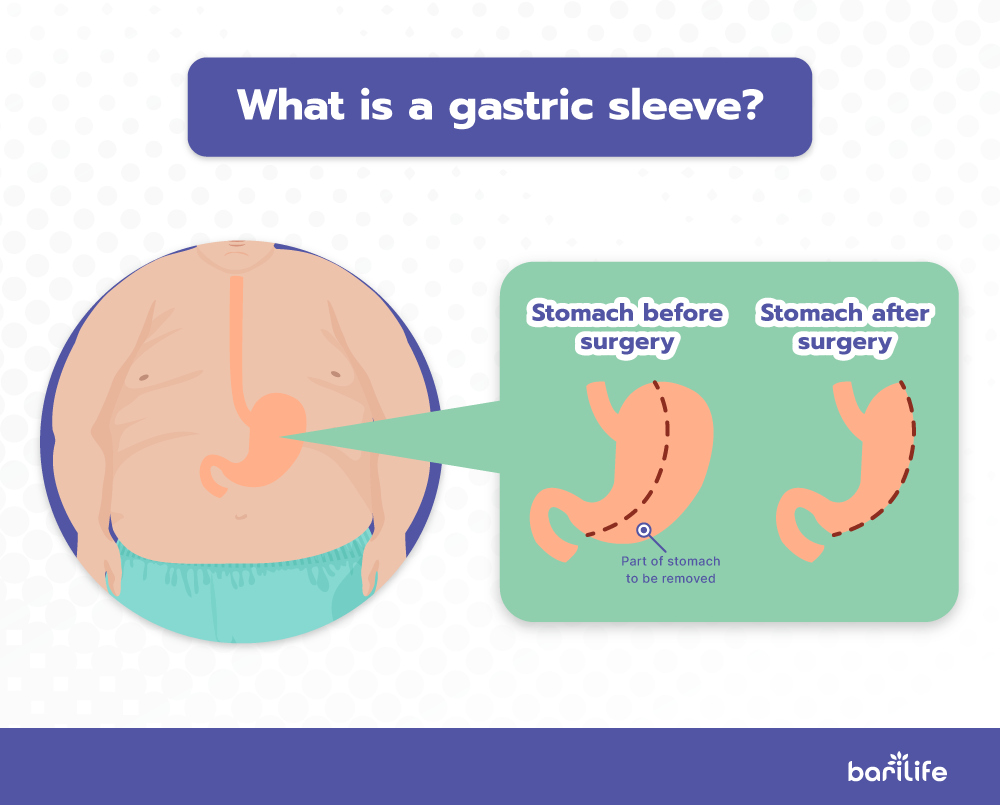
Expected weight loss after gastric sleeve
Expected weight loss after bariatric surgery varies from patient to patient and by procedure. Studies show that gastric sleeve surgery generally results in about 60% of excess weight. Excess weight loss (EWL) is calculated by taking your current weight and subtracting your ideal body weight. You can estimate your weight loss after surgery using a calculator based on your gender, height, and weight to generate an estimated excess weight loss number. Click here to use the calculator.
The calculator provides an estimation of how much weight you can expect to lose. These are just guidelines based on the average weight loss from research. Don’t feel discouraged if you don’t meet the exact number. The calculator is meant to help you set goals and benchmarks so you can adjust your plan if necessary.
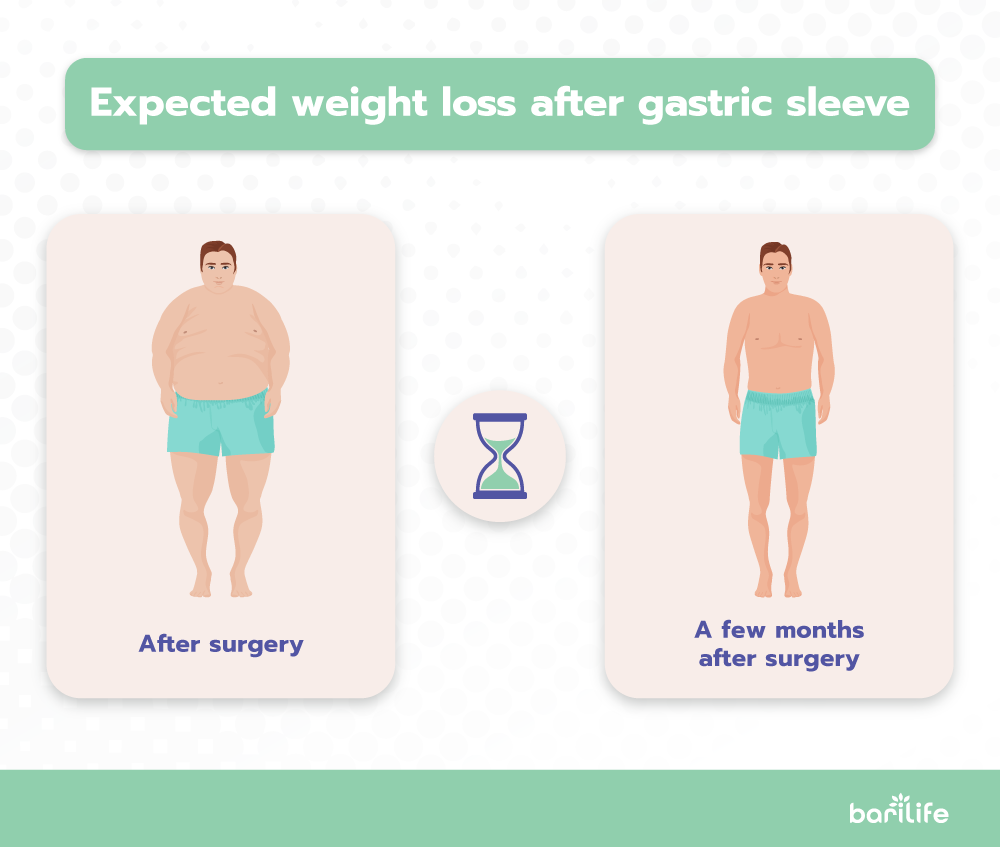
Why you’re not losing weight after gastric sleeve surgery
Many people believe they will lose a significant amount of weight very quickly after the gastric sleeve procedure. While gastric sleeve surgery helps shed excess body weight safely and gradually over time, it only works if you follow the lifestyle modifications that are recommended post-surgery. A balanced diet, regular exercise, and daily supplementation are necessary for continued weight loss. There are a few ways you can restart weight loss after it stalls.
Here are some reasons you may not be losing weight after gastric sleeve surgery:
- You’re no longer in a caloric deficit – In order to lose weight, you must consume fewer calories than your body expends.
- You didn’t follow the recommended progression of the post-surgery diet – There is a specific diet progression that is recommended after surgery. You must follow the recommended transition from liquid, pureed, and soft to regular. If this progression is not followed, it could alter the size of your pouch that was constructed during the sleeve procedure or cause other complications.
- Eating foods that don’t keep you feeling full and satisfied – If you don’t eat balanced meals consisting of protein, carbohydrates, and fats, you will often feel hungry soon after eating. This may lead to consuming excess calories which will hinder your weight loss.
- Inadequate water intake – Water supports the healing process in the body after surgery. Drinking enough water also supports weight loss and decreases risk for unwanted health concerns.
- Drinking too much soda – Soda has high amounts of sugar and calories that provide little nutrition for your body, therefore drinking soda makes weight loss more difficult.
- Not taking your recommended vitamins and supplements – Since the stomach is smaller after surgery, vitamin absorption is reduced, which can cause nutrient deficiencies including Iron, Vitamin B1, B12, D, and A. No one likes to take 10 different pills, which is why Bari Life created a line of products to help you meet your nutrient requirements in one daily dose.
- Not getting enough physical activity – Being inactive decreases the amount of energy your body expends. To lose weight, you must expend more energy than you are taking in. The simple act of walking every day can help restart your weight loss.
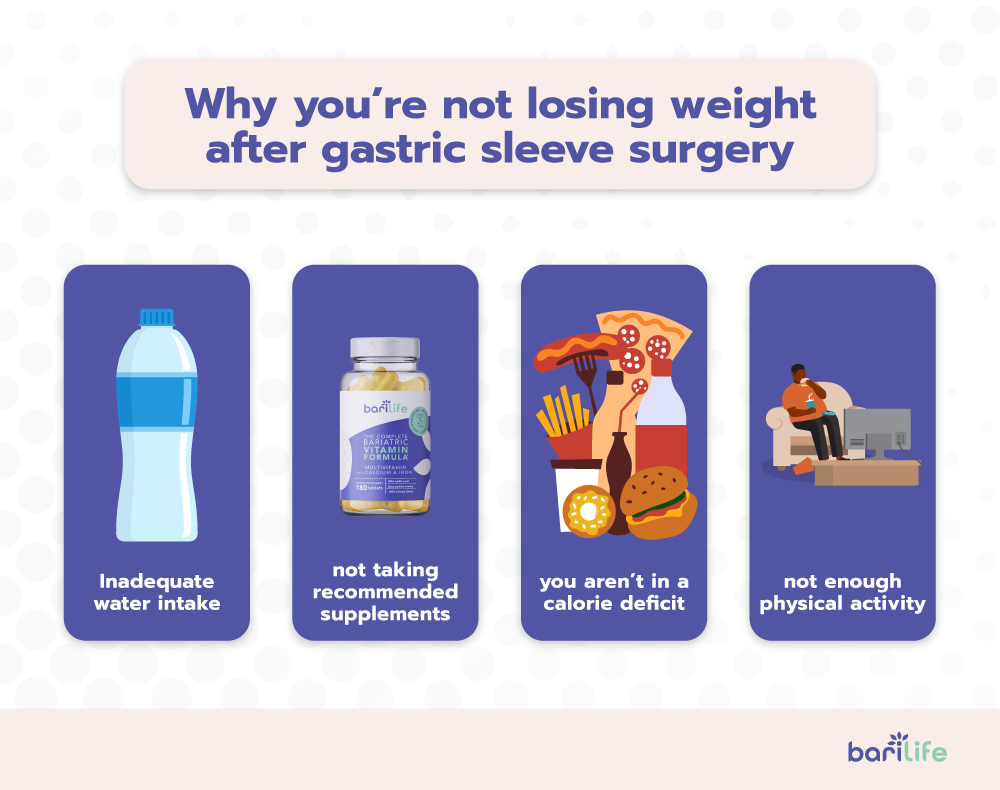
How can converting to a gastric bypass after gastric sleeve help?
Another reason for weight regain or stall in weight loss is that the size of the stomach may increase one to two years after the initial surgery. This may cause patients to eat more since they can do so more comfortably.
In one study, more than 50% of the patients experienced sleeve dilation (increase in stomach size). This size increase was not necessarily linked to an increase of daily caloric intake or insufficient weight loss during the first 18 months following surgery.
As the stomach expands, some patients begin to eat more. Patients who experience weight regain or a stall in weight loss may benefit from revision surgery. Options include conversion to a bypass, conversion to a duodenal switch, or re-sleeving.
When converting laparoscopic sleeve gastrectomy (LSG) to roux-en-y gastric bypass (RYGB), your surgeon will bypass the remaining stomach by deviating from the normal digestive path to passing through the small intestine, using the top third of the sleeve as a stomach pouch.
This procedure not only helps restart weight loss, but it may help improve GERD in patients who develop reflux after the gastric sleeve procedure. The conversion separates the esophagus from the part of the stomach that makes most of the acid and also prevents bile from the small intestine from coming back up into the esophagus.
When considering a second surgery, some physicians prefer to wait until plateau occurs to optimize the effects of the first procedure. Others prefer to perform the surgery after a set time interval.
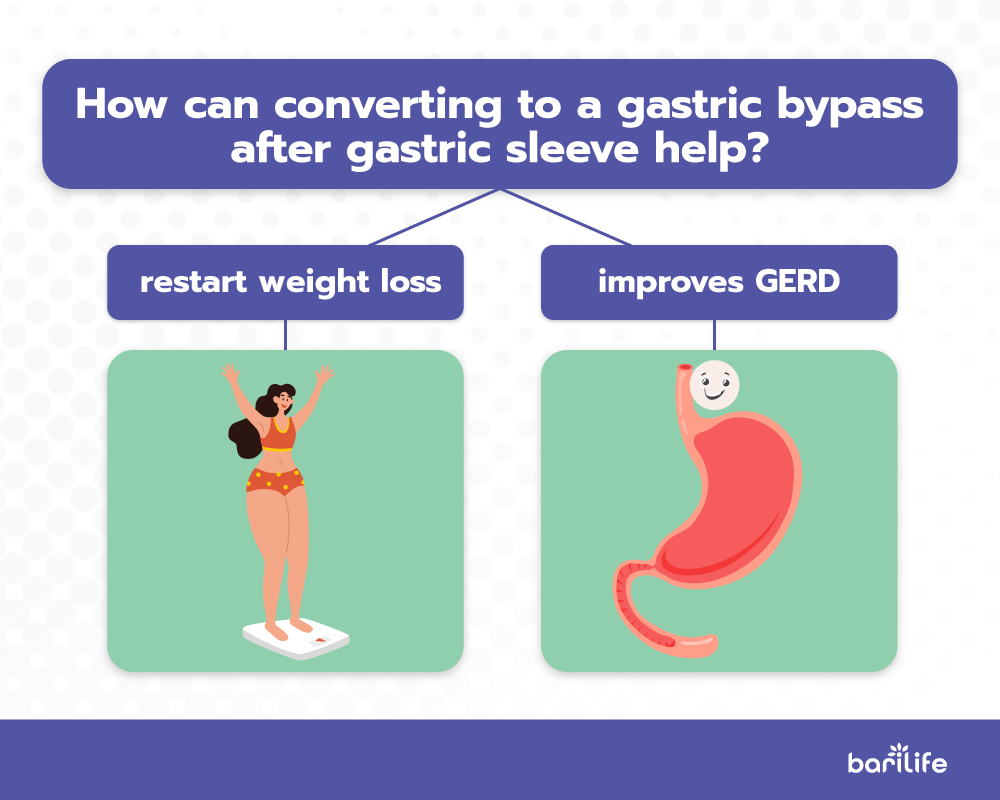
Conclusion
Continuing weight loss and maintaining results after the gastric sleeve procedure is not always going to be easy. There will be challenges, but as with anything else, the work you put in is worth the outcome.
If your weight loss has stalled or you have regained some weight, take a serious look at your diet and lifestyle and identify areas for improvement. If you feel your diet and exercise are appropriate for supporting weight loss, you can try to restart your weight loss with the Jump Start Diet. If you’ve tried changing your diet, increasing exercise, and the Jump Start Diet, contact your surgeon to determine if a pouch revision surgery is right for you.
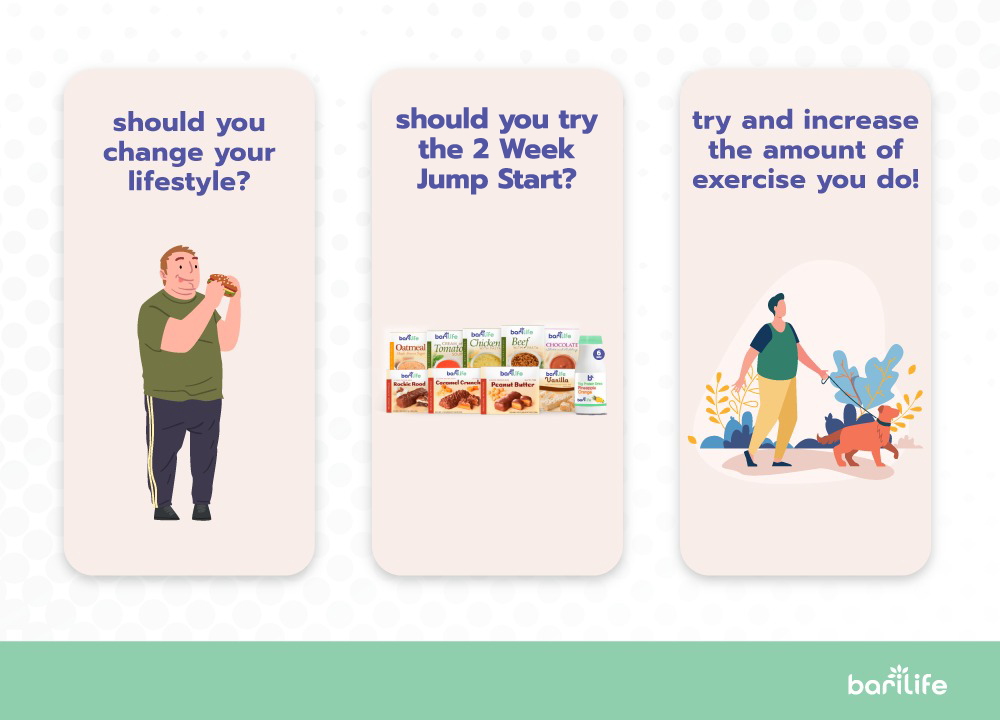




What are your tips and tricks to post-bariatric success?